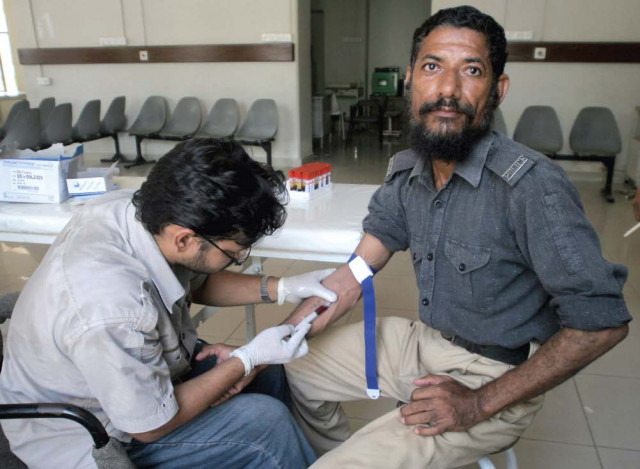Sindh continues uphill battle against hepatitis
A provincial programme helped boost work, largely ignored before 2009.

The industrialised countries of the world have eliminated hepatitis but in Pakistan the spread of this virus continues at levels of an epidemic. According to a survey, 12 million people are affected.
A national population survey conducted by the Pakistan Medical and Research Council in 2007 pegged prevalence at these figures and the assumption is that they could have risen since.
According to the results, 2.5% is the rate of hepatitis B in Sindh with five per cent for C. People are mostly contracting it via the use of syringes, badly sterilised medical devices and unsafe blood transfusions.
“In Sindh, there are about one to 1.5 million patients,” said Dr Abdul Majeed Chhutto, who runs the chief minister’s initiative for a hepatitis-Free Sindh. He said that the province had remained particularly neglected in the first three years of the national programme that was launched in 2005. Only 4,176 patients were treated.
The good news is that since 2009, when the provincial programme was launched, 145,000 patients have been treated for hepatitis B and C, 4.6 million people have been given preventive vaccines against hep B, 1,412 patients have been given treatment in jails and another 8,000 are in the process of receiving treatment.
The provincial programme has been given a three-year extension with one billion rupees allocated from the Sindh government’s annual development programme for 2012-2013. Control, treatment, awareness, legislation and increasing infrastructure are the five goals. “We have set up 70 treatment centres in Sindh, have legislated to get the auto-lock syringes bill approved and have also sent a bill against quacks to the CM,” Chhutto said. Cold storage chillers have been set up across Sindh.
According to him, one of the big achievements of the programme was the free of cost polymerase chain reaction (PCR) tests, which help detect the presence of the hepatitis virus in a human body. The project was recently approved and Sindh pays Rs1,000 a person to test 200 people a month.
Meanwhile, the World Health Organisation in Pakistan is working with the National Hepatitis Control Program by strengthening Hepatitis B vaccination in children under its EPI programme. It is helping revise national guidelines for the treatment and management of hepatitis and train health care providers on infection control. Currently WHO is working on the development of a surveillance system in the country to monitor the spread of the virus as well.
Published in The Express Tribune, July 28th, 2012.



















COMMENTS
Comments are moderated and generally will be posted if they are on-topic and not abusive.
For more information, please see our Comments FAQ